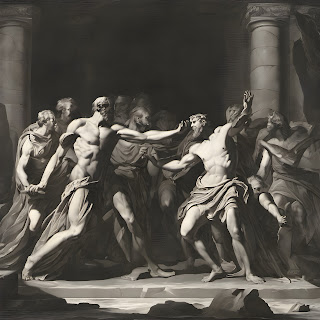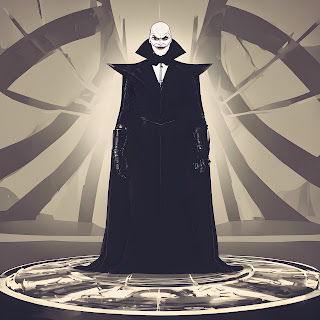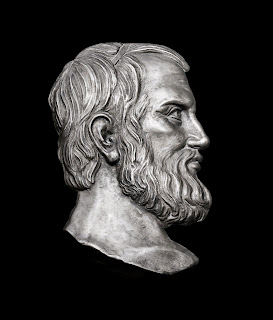Discover the art of script writing, get book writing and promotion tips, and get recommendations for captivating books on Pen and Plot. Join our community of passionate writers and readers today!
Wednesday, 26 June 2024
Menander: The Life and Works of the Ancient Greek Comic Poet
Wednesday, 12 June 2024
Aeschylus and His Plays
Sunday, 2 June 2024
Ancient Stories: The Greek Theatre
Wednesday, 22 May 2024
Unveiling the Enigmatic Appeal: Exploring Beloved Villain Characters in Movies and TV Shows
The Psychology Behind the Appeal of Villain Characters
YouTube
Wednesday, 13 March 2024
Unveiling the Timeless Artistry: Exploring the Six Elements of Ancient Greek Tragedy
Sunday, 18 February 2024
Ancient Greek Comedy and Satire: Aristophanes
Sunday, 11 February 2024
From Myth to Stage: The Role of the Furies in Ancient Greek Theatre
In Greek mythology. the Furies, also known as Erinyes, were ancient goddesses associated with vengeance and retribution. They were born from the blood of Uranus, the primordial god of the sky, when he was castrated by his son Cronus. They were three female deities, Alecto, Megaera, and Tisiphone. Their appearance was terrifying, with snakes for hair and eyes that dripped with blood. These fearsome goddesses were tasked with punishing those who had committed heinous crimes, particularly acts of murder, perjury, and disrespect towards parents.
Sunday, 4 February 2024
Mimesis: Unlocking the Essence of Representation in Ancient Greek Theatre
The ancient Greek concept of mimesis holds a paramount position in the realm of theatre. Mimesis, derived from the Greek word meaning ''imitation'' or ''representation,'' refers to the art of portraying reality through performance. This article delves into the profound significance of mimesis in ancient Greek theatre, examining its roots in the works of influential philosophers such as Plato and Aristotle, exploring its role in both tragedy and comedy, and tracing its enduring legacy in contemporary theatre.
Sunday, 14 January 2024
Exploring Comedy in Ancient Greek Theatre
Tragedy often takes the spotlight in discussion about ancient Greek Theatre; comedy played an equally important role in the theatrical landscape of the time. In this article, I will explain the world of comedy in ancient Greek theatre, uncovering its origins, types, key elements, notable playwrights, the role of satire, its impact on society, and how it compares to modern comedy.
Source Image: https://www.123rf.com/ai-image-generator/
The Significance of Comedy in Ancient Greek Theatre
Comedy served as a vital form of entertainment in ancient Greek society. It provided much-needed relief from the hardships of daily life and allowed the audience to escape their reality, even if only for a short while. Unlike tragedy, which often dealt with heavy and serious themes, comedy brought laughter and joy to the spectators, creating a sense of unity and shared experience. It served as a reflection of society's values, beliefs, and social dynamics, offering a satirical critique of various aspects of Greek life.
The Origins of Comedy in Ancient Greece
Comedy as a genre, has its roots deeply embedded in the tradition of ancient Greece. The earliest forms of comedy can be traced back to the ancient rural festivals known as Dionysia, which celebrated the god Dionysus. During these festivals, participants engaged in comedic performances filled with music, dance, and improvisation. Over time, these festivals evolved into more structured theatrical performances, with comedic plays being an integral part of the repertoire. The origins of comedy in ancient Greece can be seen in the works of playwrights like Epicharmus and Pherecrates, who laid the foundation for the development of the genre.
Types of Comedy in Ancient Greek Theatre
Ancient Greek comedy can be categorised into three main types: old comedy, middle comedy, and new comedy. Old comedy, which flourished during the 5th century BC, was characterised by its political satire and scathing critiques of public figures and institutions. Aristophanes, one of the most renowned playwrights of the time, was a master of old comedy. Middle comedy, emerged in the 4th century BC and focused more on social satire and everyday life. It was a transitional phase between old comedy and new comedy. New comedy, which gained popularity in the 3rd century BC, shifted its focus to domestic situations, love affairs, and family dynamics. Playwrights like Menander were prominent figures in the realm of new comedy.
Key Elements of Comedic Performances in Ancient Greece
Comedic performances in ancient Greek theatre encompassed various key elements that contributed to their overall impact. These elements included music, dance, costume, and physical humor. The chorus played a crucial role in the comedic performances. Music and dance heightened the comedic effect, adding rhythm and liveliness to the scenes. Furthermore, the actors wore elaborate costumes and masks that allowed them to portray a variety of characters and heighten the comedic effects. Physical humor, such as slapstick comedy and exaggerated movements, was also a common feature of ancient Greek comedy, eliciting laughter from the audience.
Notable Playwrights and Their Contributions to Comedic Theatre
Several playwrights left their mark on ancient Greek comedy, contributing to its rich tapestry. Aristophanes, often hailed as the ''Father of Comedy,'' wrote over 40 plays, many of which have survived to this day. His plays, such as ''Lysistrata'' and ''The Birds,'' showcased his mastery of satire and political commentary. Cratinus, another notable playwright, was known for his biting satire and clever wordplay. He challenged the societal norms of his time through his plays. Menander, although more associated with new comedy, also made significant contributions to the comedic genre. His plays focused on the intricacies of human relationships and provided a glimpse into the everyday lives of Athenian citizens.
The Role of Satire in Ancient Greek Comedy
Satire played a vital role in ancient Greek comedy, allowing playwrights to express their opinions and critique various aspects of society. Through satire, comedic playwrights mocked politicians, philosophers, and societal norms, often using exaggerated and absurd situations to highlight their criticisms. Satire served as a tool for social commentary and political criticism, offering a platform for the playwrights to voice their opinions and challenge the status quo. It provided the audience with a lens through which they could view their own society and reflect on its flaws and shortcomings.
The Impact of Comedy on Ancient Greek Society
Comedy had a profound impact in ancient Greek society, shaping public opinion and influencing cultural norms. It provided a form of social commentary that allowed citizens to engage in political discourse and question the actions of the leaders. Comedy served as a means of catharsis, allowing the audience to release pent-up emotions and find solace in laughter. It fostered a sense of unity among the audience members, creating a shared experience that transcended social boundaries. The impact of comedy on ancient Greek society can be seen in its lasting legacy, as the genre continues to influence modern comedic performances.
Comparisons Between Ancient Greek Comedy and Modern Comedy
While comedy has evolved over centuries, there are undeniable similarities between ancient Greek comedy and its modern counterparts. Both genres use humour to entertain and provoke thought. Satire, a prominent feature of ancient Greek comedy, remains a powerful tool in modern comedic performances as well. The use of physical comedy and exaggerated movements can be traced back to the comedic performances of ancient Greece. Additionally, the exploration of social and political issues through comedy continues to be a prevalent theme in contemporary comedic works. The legacy of ancient Greek comedy can be seen in the foundations it laid for modern comedy.
Conclusion
Comedy in ancient Greek theatre played a crucial role in the development of the performing arts. It provided entertainment, social commentary, and a means of catharsis for the audience. The origins of comedy can be traced back to the festival traditions of ancient Greece, eventually evolving into more structured theatrical performances. The key elements of comedic performances, such as music, dance costume, and physical humour, contributed to their overall impact. Notable playwrights like Aristophanes, Cratinus, and Menander left a lasting legacy through their contributions to the genre. Comedy's role as a platform for satire and social critique influenced ancient Greek society and continues to shape modern comedy. By unravelling the laughter, we gain a deeper understanding of the complexities and enduring significance of comedy in ancient Greek theatre.
Relevant Articles
References
Ancient Greek Comedy: World History Encyclopedia
Ancient Greek Comedy: New World Encyclopedia
Old Comedy: Encyclopedia Britannica
YouTube
Menander: The Life and Works of the Ancient Greek Comic Poet
Menander was born around 342 BC in Athens and died in 290 BC. Hailing from a family of prominent intellectuals, his father was Diopeithes, a...

-
The Enuma Elis is a mesmerising epic poem from ancient Mesopotamia that has captivated scholars and enthusiasts for centuries. As one of the...
-
Hubris, a concept deeply rooted in ancient Greek theatre, is a tragic flaw that often leads to the downfall of the protagonist. Derived from...
-
The chorus is an integral part of ancient Greek tragedy, playing a vital role in enhancing the dramatic effect and conveying the central the...
















